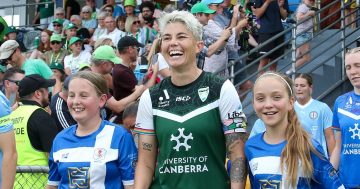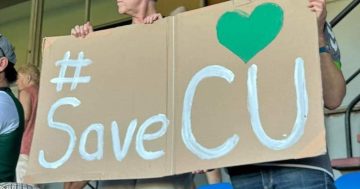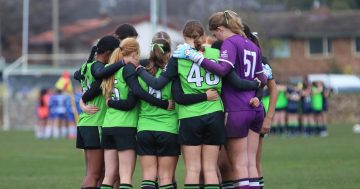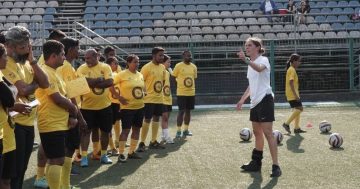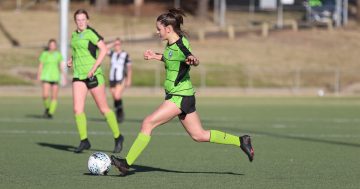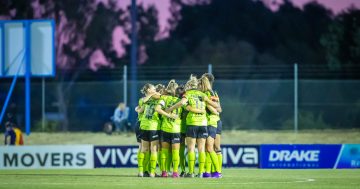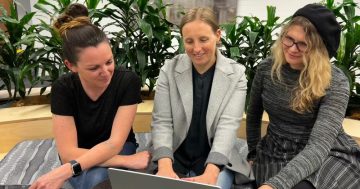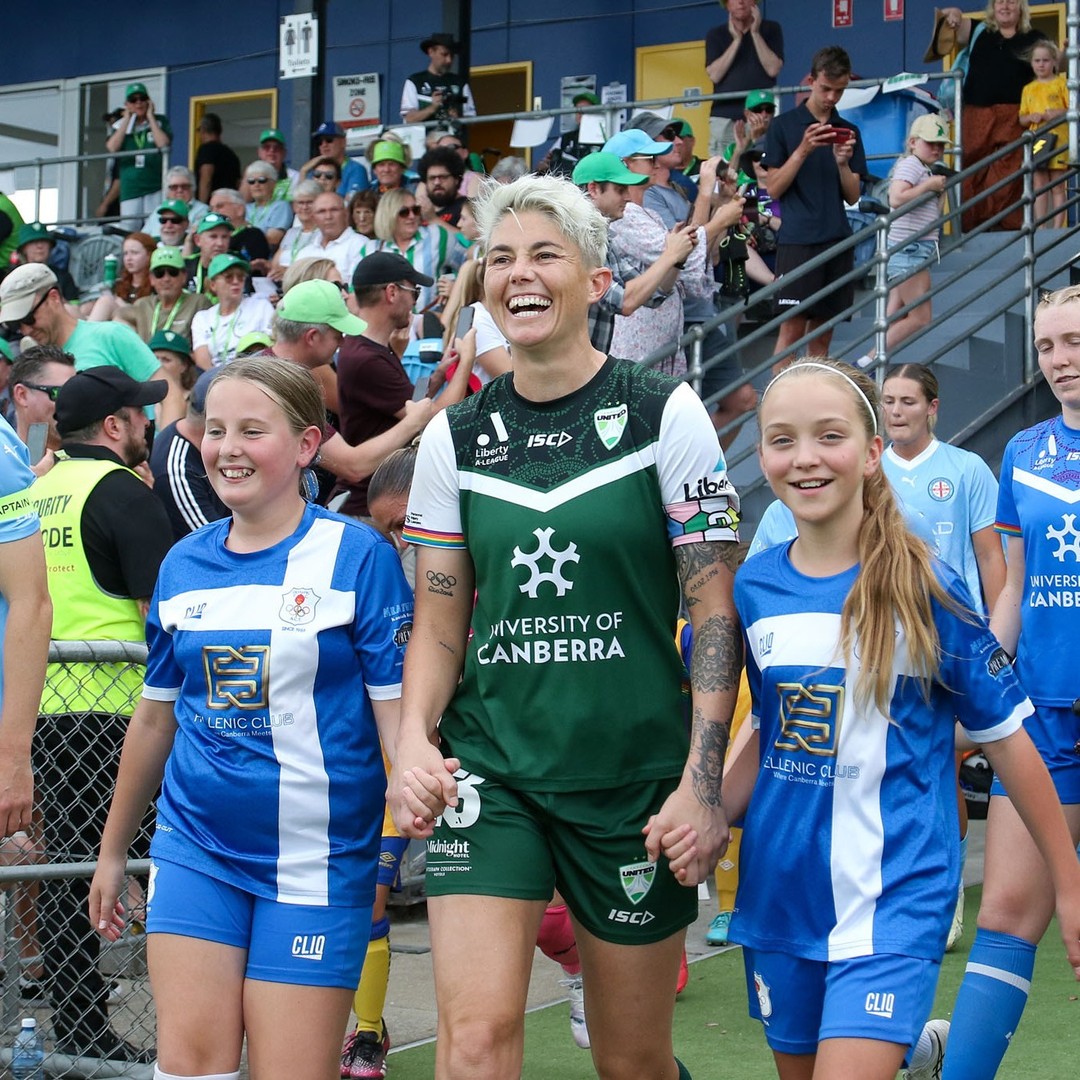
Sue Read is working to keep Canberra United on the pitch: “This community just doesn’t want this team to die.” Photo: Save Canberra United Facebook.
The first steps have been taken to link up a passionate fundraising group and Capital Football to keep Canberra United on the field.
Save Canberra United working group (SCU) was launched when it became clear that Capital Football was facing financial difficulties.
New CEO Samantha Farrow released a statement in late March explaining that the club intended to have Canberra United on the pitch for season 17, “subject to improved investment”.
“Capital Football continues to explore all avenues to ensure that Canberra United take the field for Season 17, seeking new sources of investment having exhausted traditional revenue and funding streams,” she said.
Former Matilda and working group leader Sue Read said that initial discussions with Capital Football and SCU’s own due diligence had estimated that the club needed to raise about $500,000 for the professional team to go forward.
“This community just doesn’t want this team to die,” she said.
A fundraising campaign was launched on Friday (5 April) to come up with $300,000 in two months.
It’s expected the money raised will go directly to supporting Canberra United and elite women’s football, including covering coaching and support staff, training facilities, uniforms, performance support, accommodation, meals and nutrition, transport and other wraparound support.
As of Tuesday (9 April), it’s already raised over $47,000.
Capital Football is working to get the other $200,000.
Ms Read said while SCU may have longer to raise the cash, there is still an urgency to meet the deadline.
“The board needs to have confidence there’s going to be enough money around so [the club] won’t fall into a $500,000 hole.”
A group from SCU met with Ms Farrow and Capital Football chair Angelo Konstantinou on Monday (8 April) to discuss where to go from here. A contract is now being discussed to align both sides’ objectives.
A statement from Capital Football described the meeting as “productive” and that it looked forward to working with SCU.
“Capital Football will be providing regular updates on the situation, likely beginning later this week, outside of which there will be no further comment made at the moment,” it stated.
If Canberra United can’t play in the 24/25 season, the money raised will be redirected to support elite women’s football.
A not-for-profit trust is being set up allowing people to make tax-deductible donations.
“We’ll still need a pathway for the women coming through … if there are no academies, then there’s no feeder groups [to professional levels] for women in the area,” Ms Read said.
Capital Football has invested more than $2.5 million in Canberra United across the past two seasons and has doubled the club’s annual budget since 21/22. It is the only member federation that runs its own A-League side.
Ms Farrow has previously said the rising cost of running an A-League side has had a “significant impact” on the bottom line.
“The Canberra United season now comprises 22 games, as opposed to 12 games in 2020/2021 and 14 games in 2021/2022. This has considerably raised the cost of running a full-time professional side and has put significant pressure on our financial standing as evidenced by the reported deficit in 2022, with another deficit anticipated for 2023,” she said.
“Capital Football has over 15,000 participants across all areas of our game. Continuing to run at a loss will affect each individual and the ongoing viability of our competitions, making additional sources of revenue vital to our success.”
The ACT Government included $250,000 in the recent budget for Canberra United and offered a 50 per cent payment in advance of the agreement to help with upfront running costs. It’s unclear if this offer was taken up.
It provides $2.5 million to the Western Sydney Giants to hold three home games in Canberra.
Ms Read urged the ACT Government to do more.
“I want to keep encouraging the government to raise their amount of funding, which I don’t think is unreasonable given the funding being put into men’s sport,” she said.












